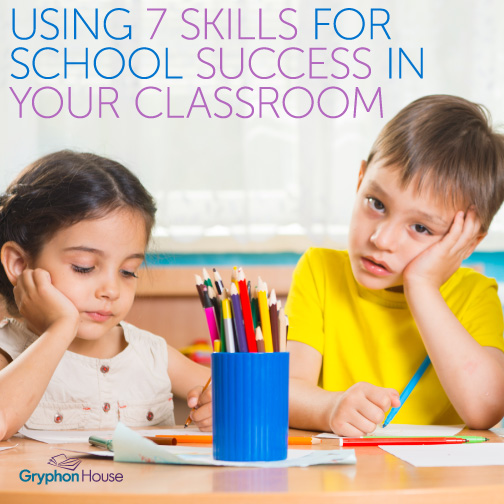
Social and emotional development in early learning is a hot topic in the education world, as more educators react to research proving that social emotional skills are critical to learn in the early years. More schools are adding a social emotional learning curriculum that aims to develop positive social skills and self-confidence among little learners.
Instructors can easily incorporate social and emotional learning into their existing curriculum using Pam Schiller's Seven Skills for School Success: Activities to Develop Social & Emotional Intelligence in Young Children.
Here is s snippet of Schiller's valuable advice.
What You can do to Boost a Child's Self-Control Skills
Model Self-Control
Maintain control when children are out of control. This is not always easy to do. Count to 10, take deep breaths, or do whatever it takes to maintain your composure.
Share your emotions with children. Let the child know when you are especially happy about something - your sister's baby has arrived, or you are excited about going on vacation with your family. Let the child know when you are sad. Explain to him how you are handling your sadness if you think it is something he will understand.
Describe what you do to stay in control. For example, when something happens that almost causes you to lose your control, say to the child, "I almost raised my voice, but then I realized that is not a good choice. So I counted to 10 and used my words to tell you again that I needed you to pick up the blocks."
What You can do to Boost a Child's Skills in Relating to Others
Model Relating to Others
Pay attention to children's facial expressions and body language. Say to the child, "You look happy today. What's going on?" or "I could tell by your eyes that it surprised you when Joseph handed you the ball."
Talk about Relating to Others
Ask open-ended questions during and after a story to encourage children to reflect. Help the child connect her feelings to the feelings of the character in the story. "When you have courage, does it mean you are not afraid? Can you remember a time when you felt frightened?"
For more best practices and advice on teaching social-emotional learning in the classroom, grab a copy of Seven Skills for School Success by Pam Schiller.
Author(s)Pam Schiller
Jenna Roby
A graduate of High Point University, Jenna Roby served as marketing specialist for Gryphon House from 2013-2015.

